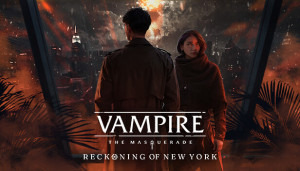The correct order to play the Uncharted games: For a better immersion in the game’s story

The Uncharted movie, whilst not considered - critically-speaking - to be paradigm-shifting, did at the very least expose yet more people to what has been an exceptionally successful gaming franchise. Made by Naughty Dog, the same developers that made The Last Of Us - a game that has been adapted to a TV show that is somewhat well-considered, critically-speaking - every one of the Uncharted games is worth playing in its own way.
In this article, the question at hand is the following: what's the best way to approach playing this franchise that helped Sony to (arguably) win the console wars, with respect to ordering? That is to say, what order should you play the games in in order to have the best time? I will offer to you two possible solutions that are both equally as valid - one, more obvious; one, perhaps less so - and you can take your pick. The first is what I'd considered to be the most obvious: to play the games in chronological order, with respect to the years that the events of each game takes place.
How to play the Uncharted games in chronological story order
Uncharted: Golden Abyss
This was not the first Uncharted game to release - in fact, this released a month after Uncharted 3 - but this is the first game with respect to the in-game chronology, being set before the events of Uncharted: Drake's Fortune (sometimes colloquially known this is a prequel to Drake's Fortune, though it wasn't released till 2011).
This game is the first game, chronologically-speaking, in which you play as Nathan Drake - in fact, you'll play as Nathan in all but one of the Uncharted games - who is an explorer whose sardonic quips evoke many "masculine" heroes, but seems to most evoke some of Brendan Fraser's early roles. Golden Abyss sees you work with Marisa Chase to hunt for lost treasure and, just like the rest of the series, this game contains supernatural elements that create an other-worldliness that is offset by Drake's deadpan-delivery of his sarcastic humor.
Abyss was a PS Vita game, where the PS Vita was, if you don't recall, a handheld console, just like the PSP before it, and whilst a lot of games that get released to handheld consoles are playable on modern systems, this one is not, and that's because a big part of the gameplay relies on Vita-specific mechanics. SO, if you want to play this game, you'll have to - if you don't have one lying around - purchase a Vita, a console that first released in 2011. That is to say, this game is only playable if you can get your hands on a functioning console that first released 13 years ago.
Given that this game is exclusive to the Vita, it is hard to justify playing this game in certain ways. There are, however, multiple walkthroughs online. Therefore, if you don't feel totally committed to playing every game, but would like to have experienced this game in order to have a deeper sense of the lore, watching a walkthrough might be your best bet.
Uncharted: Drake's Fortune
This game was released first of all the games on our list - it was the first Uncharted game to ever release, in fact - and therefore introduced the world to Nathan Drake, who you also play in this game. You, alongside Elena Fisher (a reporter who will become a recurring character), will seek the treasure of Sir Francis Drake, to whom Drake is supposedly related (though this is retconned in Uncharted 4), and in so doing will search for El Dorado. You will, as in every other game that subsequently released, come up against various obstacles: certain humans will make your job harder; certain terrain will make your job harder; certain supernatural entities will make your job harder.
This game initially released for the PS3, and was a Playstation exclusive. This game is also playable as part of Uncharted: The Nathan Drake Collection, which also includes Uncharted 2 and Uncharted 3, and all three of which are remastered as a part of this package.
Uncharted 2: Among Thieves
This game begins in media res. It's an extremely confident way to start a game. Here, Nate will work with Chloe Frazer and Elena Fisher in order to seek that Cintamani Stone. This game in incredibly exhilarating at its best, with the developers having learned many lessons from Uncharted 1, and the multiple betrayals that occur leave the player guessing who's who, and what allegiances are solid.
Uncharted 3: Drake's Deception
This game was also a PS3 release - though, as mentioned before, is also playable as part of The Nathan Drake Collection - and gives some history that contextualizes your relationship with Sully, another series regular. It also sees the return of Chloe Frazer and Elena - Nathan's wife at this point, but their relationship is tense - and you will attempt to seek the lost city of Ubar. This game is great precisely because it explores the marriage of Drake and Elena. Their dissolution, and subsequent reconciliation, is a recurring plotline in many of the games, and it serves to create some degree of drama - some sense that there are human emotions to which we can all relate at play - and it never ceases to be effective.
Uncharted 4: A Thief's End
Nathan Drake turns out to have a brother named Sam, which is a retcon, though Naughty Dog try to contextualize it as not having been discussed for emotional reasons, with Nathan believing Sam to have died. Here, we find Nathan much older, having retired and settled down with Elena, but all that is turned upside down when Sam reappears in his life. With another voice-acting stalwart, Troy Baker, playing him, he is a great addition, and adds even more emotion and believability to the lore, and his debt to a drug lord, Hector Alcazar, serves to give a good reason to drag Nathan out of retirement.
Uncharted: The Lost Legacy
This is the only game in this least that sees you playing as a different protagonist: in this game, you instead play as Chloe Frazer - who, as you'll recall, was first introduced in Uncharted 2: Among Thieves - and she's partnered with Nadine Ross, and you will search for the tusk of Ganesh in India. This is a standalone sequel, not a numbered one, and Naughty Dog did a great job of being more inclusive, having both their protagonist and companion be females played by females.

How to play the games in ascending Metacritic order
The phrase "Save the best till last" applies to this technique, and is the one that makes most sense for most people: if this is a game series you know you are going to play all of, you might as well get the games that are universally considered the worst out of the way first.
The Metacritic score is an average of the "score" that reviewers gave it: if one reviewer gave it a 7/10, and one reviewer gave it a 3/10, that would average to a 5/10, or a 50/100, or a Metacritic score of 50.
Uncharted: Golden Abyss
80 is, by all accounts, a good Metascore to receive - Outlast, for example, received the same, and is considered to be the best horror game ever made by some - and that is a testament to the overall strength of the franchise that the worst of the bunch is still critically acclaimed, at least relatively-speaking. Even so, this is still the worst of the bunch, at least according to Metacritic.
As for the content of the criticisms, a lot of them were levied at the game's story. In fact, this game - other than Lost Legacy, which we'll talk about later - is the only game on our list to have not been nominated for a D.I.C.E. Award for Outstanding Achievement in Story.
Furthermore, graphically-speaking, this game isn't great: in his IGN review, Greg Miller claimed that the graphics of this game were "on par with the first Uncharted", which is impressive, given that this was released for a handheld, but does mean that choosing to go out of the way to play this game constitutes choosing to play a game that only looks as good as a game that initially released all the way back in 2007.
The complexity of acquiring a Vita in the first place is something already discussed in this article - if you don't already have one, it represents a lot of money and work - and, in the best case scenario, you're playing a game that is the lowest-reviewed one of the series? There is definitely merit to skipping this one, and instead watching the walkthrough online.
Uncharted: The Lost Legacy
Uncharted: The Lost Legacy - which, if you recall, is the one in which you do not play as Nathan Drake - arguably deviates most from the roots of the series, given that the protagonists do not evoke Indiana Jones in as direct of a way, but still managed to receive a Metascore of 84, which is still a great score.
Whilst it is great that Naughty Dog endeavored to include more women in their latest game, the fact that these characters don't feel as three-dimensional as Drake is a shame, and could potentially have been avoided by not bringing back old characters, but instead inventing two new ones. Furthermore, the game teases you with an open-world, only to wrench it away from you midway through the game. Its multiplayer mode is the same as Uncharted 4's with only a little bit more content, and so for fans of that part of the games, it doesn't even rewrite the formula.
WIth that being said, 84 is still a great score, though is obviously lower than our next game on the list.
Uncharted: Drake's Fortune
The first game to release of the franchise received a Metascore of 88 - an incredible score - with critics finding the characters, and the dialogue between them, to be extremely well-realised, and a breath of fresh air in the cultural context in which this game released. There must be some consideration given to the fact that some of the metrics to evaluate this game - story, graphics etc. - might not be as revolutionary as they were back then, and there are some parts of the game that critics found outright annoying, but the fact of the matter is that for a game that is over ten years old, this game has aged remarkably well, and it serves as an incredible introduction to characters that people came to know and love in an extremely deep way.
Uncharted 3: Drake's Deception
Having received a Metascore of 92, Drake's Deception is the lowest-rated numbered sequel to Uncharted 1, and a lot of that is owing to the fact that it directly followed Uncharted 2, the highest rated game on our list. Uncharted 2 was legendarily well-made, to where a sequel would inevitably disappoint somewhat, but this is still one of the best games ever made.
Uncharted 4: A Thief's End
Having received a Metascore of 93 - only one higher than its predecessor - Uncharted 4 represents the end of Nathan Drake's story, and critics found it to be moving and emotional whilst also being adrenaline-fueled fun. Whilst the aforementioned retconning rubbed some people the wrong way, graphically-speaking, this game is incredible, being the only game of the bunch to have been made for the Playstation 4. This game feels a tad linear - and that linearity is made starker in comparison to the incredible graphics and nuanced storytelling - but this is, otherwise, an incredible experience, and playable on both the PS4 and PS5.
Uncharted 2: Among Thieves
Having learned lessons from the first game in the franchise, this game managed to receive a Metascore of 96, and if I'm making the argument that the best order to play the games in is worst-to-best, this is definitely the last one you should play. Making confident choices like starting the game in media res make the game an incredibly memorable experience, and the increased emphasis on stealth - or at the very least, the efficacious development of the stealth systems within the game - ensure that this game still feels incredible to play, serving as incredible game to cap off the Uncharted series should you choose to play in the order recommended by me.
Conclusion
Having not included Fight For Fortune - a card game within the same game franchise - we've given you two orders in which you could play the games. And, if you exclude Golden Abyss, the fact of the matter is that the chronological order of the games is equivalent to their release order: 1, 2, 3, 4, and then Lost Legacy, so playing them by release date - as most people would - works great, given that most people wouldn't be playing Golden Abyss anyway. There are multiplayer modes available to you, but they are not generally considered to be paradigm-shifting, and whilst attempting to discover the best online entertainment experiences can be achieved in other ways - slotsjudge.com, for example, would be a way of doing it with respect to gambling, slots etc., or watching things on Netflix would be an example of seeking more passive forms of entertainment than either gambling or gaming, both of which require more active forms of participation - the fact of the matter is that Uncharted has always been a series not defined by a fun multiplayer mode, but instead defined by its incredible single-player mode, putting you in the shoes of a charismatic and confident explorer.
You can:
1) Play the games in the first order given (by in-game chronology), or;
2) Play the games in the second order given (by ascending Metascore), or;
3) Play the games in some other way that appeals to you: for example, alphabetically!?
No matter how you choose to play the games, the fact that it's your way makes it valid. Thanks for reading, and happy gaming!









